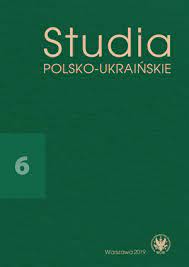Deconstruction of Interpretative Models of Lesya Ukrainka’s The Forest Song
Deconstruction of Interpretative Models of Lesya Ukrainka’s The Forest Song
Author(s): Mariia Vasylivna MoklytsyaSubject(s): Ukrainian Literature, Interwar Period (1920 - 1939), Theory of Literature, Drama
Published by: Wydział Lingwistyki Stosowanej Uniwersytetu Warszawskiego
Keywords: Lesya Ukrainka; The Forest Song; neoromanticism; neoclassicism; symbolism;
Summary/Abstract: The article explores a need to provide a permanent revision of the ways of reading classical texts. The fairy drama The Forest Song was written by Lesya Ukrainka, who is acclaimed as an outstanding dramatist of Ukrainian literature. This play has a vast bibliography and serves as a target of a variety of critical approaches. The point is, however, that the predominant position among them still belongs to the interpretative models generated by Lesya Ukrainka’s contemporaries. This refers, first of all, to those who have hitherto interpreted The Forest Song within the following two frameworks: neoromantic, grounded in Polissyan folklore and the author’s mythology, and neoclassical, launched by neoclassicists of the 1920s and based on the ties of Lesya Ukrainka’s play with classical drama. The scholars overlook, though, a conflict between the two interpretations. Each model, employed with no regard for the other one, operates on certain elements of the text. The scholars neglect the need to correlate their work with the other, totally inverse, model (neoromanticism and neoclassicism are, at a fundamental level, as aesthetically opposed to each other as are romanticism and classicism). The article offers a new model for reading the text of Lesya Ukrainka through the lens of symbolism. This model allows us to account for the congruence of classical normativity and romantic liberty within a single text.
Journal: Studia Polsko-Ukraińskie
- Issue Year: 2019
- Issue No: 6
- Page Range: 159-174
- Page Count: 16
- Language: English

